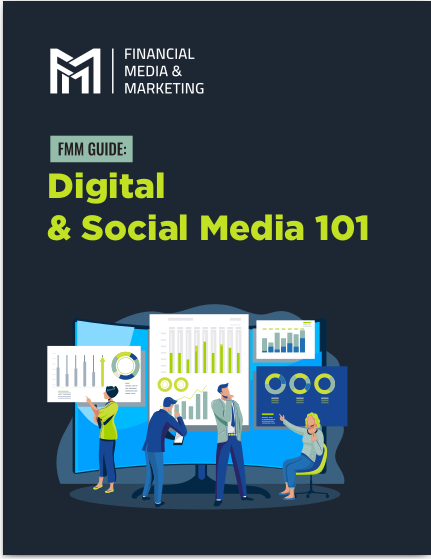Key Takeaways
- Building a solid reputation is essential for financial advisors to gain client trust and enhance their professional credibility.
- Strategies such as delivering exceptional service, maintaining transparency, and leveraging testimonials can significantly boost a financial advisor‘s reputation.
Boosting Your Credibility: How Financial Advisors Can Build a Solid Reputation
For financial advisors, a solid reputation is one of the most valuable assets. It is the foundation upon which trust is built, and it can significantly influence client acquisition and retention. A strong reputation not only attracts new clients but also fosters long-term relationships, leading to sustained business growth. This article explores effective strategies for financial advisors to build and maintain a solid reputation.
Deliver Exceptional Service
The cornerstone of a strong reputation is consistently delivering exceptional service to your clients. Here’s how you can achieve that:
Understand Client Needs
- Personalized Financial Plans: Tailor your financial plans to meet the specific needs and goals of each client. A one-size-fits-all approach is less effective and can damage your credibility.
- Active Listening: Take the time to listen to your clients’ concerns, preferences, and objectives. This helps build trust and demonstrates that you genuinely care about their financial well-being.
Provide Clear Communication
- Transparency: Be open and transparent about your fees, services, and the risks associated with different investment options. Avoid hidden fees and unclear terms, as these can erode trust.
- Regular Updates: Keep your clients informed about the status of their investments and any changes in the market that might affect their financial plans. Regular communication helps clients feel secure and valued.
Exceed Expectations
- Proactive Approach: Anticipate potential issues and address them before they become problems. This proactive approach shows that you are attentive and committed to your clients’ success.
- Going the Extra Mile: Offer additional value by providing educational resources, hosting financial workshops, or offering free consultations. These extra efforts can set you apart from competitors.
Maintain Transparency
Transparency is critical in building a solid reputation. Clients need to trust that their financial advisor is honest and forthcoming. Here are ways to maintain transparency:
Open Financial Practices
- Detailed Reporting: Provide detailed reports that clearly explain the performance of investments, including any fees or charges. This helps clients understand where their money is going and how it is performing.
- Accessible Information: Ensure that clients have easy access to all necessary information about their investments and financial plans. This could include an online portal where they can view their accounts and performance reports.
Honest Communication
- Integrity: Always be honest with your clients, even when the news is not favorable. If an investment is not performing well, explain why and discuss potential strategies to mitigate losses.
- Ethical Standards: Adhere to the highest ethical standards in all your dealings. This includes avoiding conflicts of interest and always acting in the best interest of your clients.
Leverage Testimonials and Reviews
Positive testimonials and reviews can significantly enhance your reputation. They provide social proof that you are a trustworthy and competent financial advisor.
Collecting Testimonials
- Client Feedback: Regularly ask clients for feedback on your services. Use this feedback to improve your practices and also to gather testimonials.
- Case Studies: With permission, create case studies that highlight how you have helped clients achieve their financial goals. These can be powerful testimonials that showcase your expertise.
Showcasing Testimonials
- Website and Marketing Materials: Feature client testimonials prominently on your website and in your marketing materials. Highlight specific outcomes and experiences to provide potential clients with a clear picture of your capabilities.
- Social Media: Share positive reviews and testimonials on your social media platforms. This not only boosts your reputation but also increases your visibility.
Build Strong Professional Relationships
Building strong relationships within the financial industry can also enhance your reputation. Here’s how:
Networking
- Industry Events: Attend industry conferences, seminars, and workshops to network with other professionals. These events provide opportunities to learn from others and to establish yourself as a knowledgeable and engaged professional.
- Professional Associations: Join professional associations such as the Financial Planning Association (FPA) or the National Association of Personal Financial Advisors (NAPFA). Active participation in these groups can enhance your credibility and visibility.
Collaboration
- Partnerships: Form strategic partnerships with other financial professionals, such as accountants, attorneys, and real estate agents. These partnerships can lead to referrals and can also enhance your reputation as a well-connected advisor.
- Mentorship: Offer to mentor junior advisors. This not only helps them develop their skills but also positions you as a respected leader in the industry.
Stay Educated and Certified
Continuing education and professional certifications demonstrate your commitment to maintaining high standards of knowledge and competency.
Continuing Education
- Courses and Workshops: Regularly attend courses and workshops to stay updated on the latest financial trends, regulations, and best practices. This ongoing education ensures that you can provide the best advice to your clients.
- Advanced Degrees: Consider pursuing advanced degrees or certifications in finance, such as a Master’s in Financial Planning or a Certified Financial Planner (CFP) designation.
Professional Certifications
- Relevant Certifications: Obtain and maintain relevant certifications such as CFP, Chartered Financial Analyst (CFA), or Certified Investment Management Analyst (CIMA). These credentials are recognized in the industry and can enhance your credibility.
- Adherence to Standards: Ensure that you adhere to the ethical and professional standards required by these certifications. This includes participating in continuing education and abiding by codes of conduct.
Provide Educational Content
Creating and sharing educational content can position you as an expert in your field and build trust with your clients.
Blogging and Articles
- Regular Blog Posts: Write regular blog posts on topics relevant to your clients, such as investment strategies, retirement planning, and tax tips. This not only demonstrates your expertise but also provides valuable information to your clients.
- Guest Articles: Write guest articles for reputable financial publications or websites. This can increase your visibility and establish you as a thought leader in the industry.
Webinars and Workshops
- Hosting Webinars: Host webinars on financial topics of interest to your clients. This allows you to share your knowledge and interact with clients in real-time.
- In-Person Workshops: Organize in-person workshops or seminars to educate clients and potential clients. These events provide an opportunity to showcase your expertise and build personal connections.
Monitor and Manage Online Presence
Your online presence plays a crucial role in shaping your reputation. Here’s how to manage it effectively:
Online Reviews
- Monitor Reviews: Regularly monitor online review sites such as Google My Business, Yelp, and Trustpilot. Respond to reviews, both positive and negative, to show that you value client feedback.
- Encourage Positive Reviews: Encourage satisfied clients to leave positive reviews. This can help counterbalance any negative reviews and improve your overall rating.
Social Media
- Engage on Social Media: Actively engage with your audience on social media platforms. Share valuable content, respond to comments, and participate in relevant discussions.
- Professional Image: Maintain a professional image on social media. Ensure that your profiles are updated and that your posts reflect your expertise and commitment to your clients.
Conclusion
Building and maintaining a solid reputation as a financial advisor requires a commitment to excellence, transparency, and continuous improvement. By delivering exceptional service, maintaining transparency, leveraging testimonials, building professional relationships, staying educated, providing educational content, and effectively managing your online presence, you can enhance your credibility and attract more clients. A strong reputation is not built overnight, but with consistent effort and dedication, it can become one of your most valuable assets.
Contact Information:
Email: [email protected]
Phone: 8777993433
Bio:
Stan Collins is a Marketing Specialist based in Arizona that focuses primarily on online branding and digital marketing. In addition to helping financial professionals, real estate agents, and other business professionals generate leads and perfect their online identities, Stan Collins also writes educational content about marketing.










